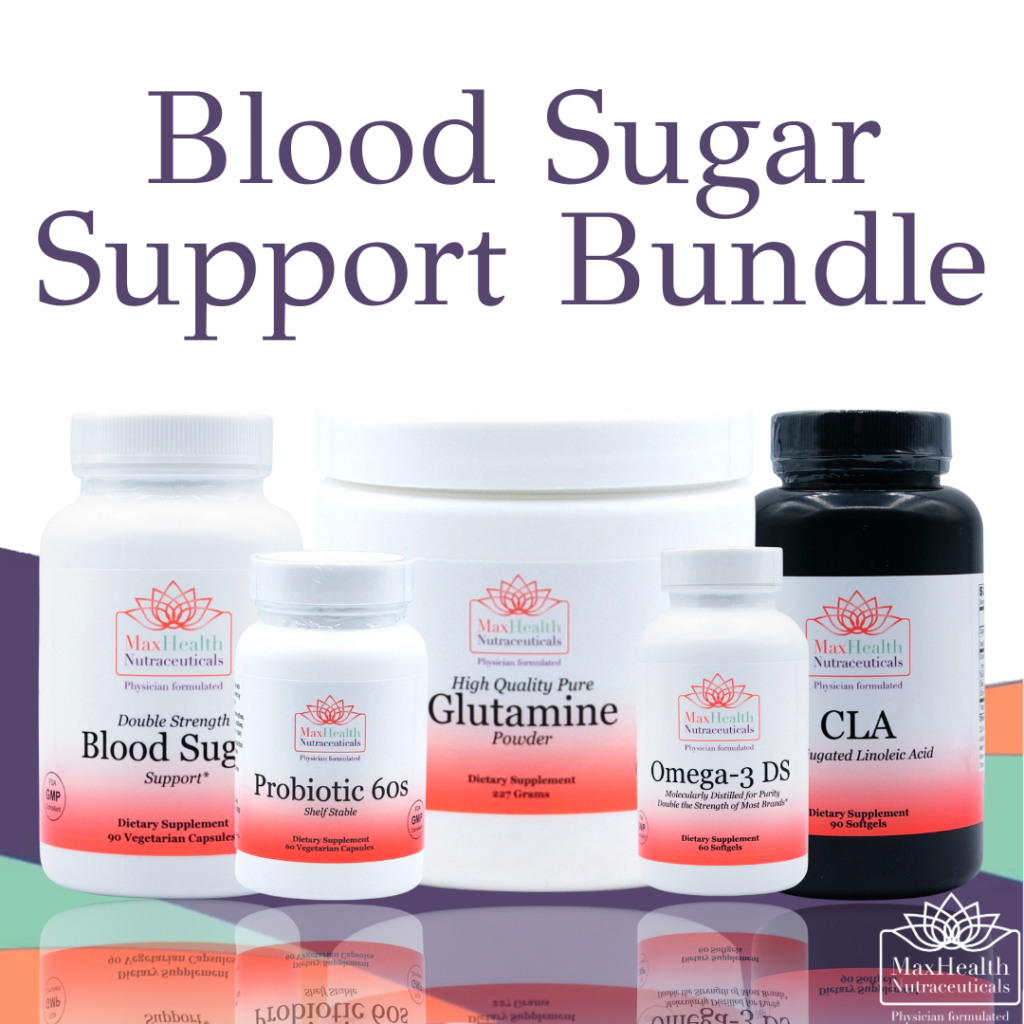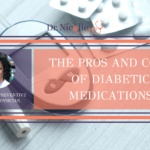
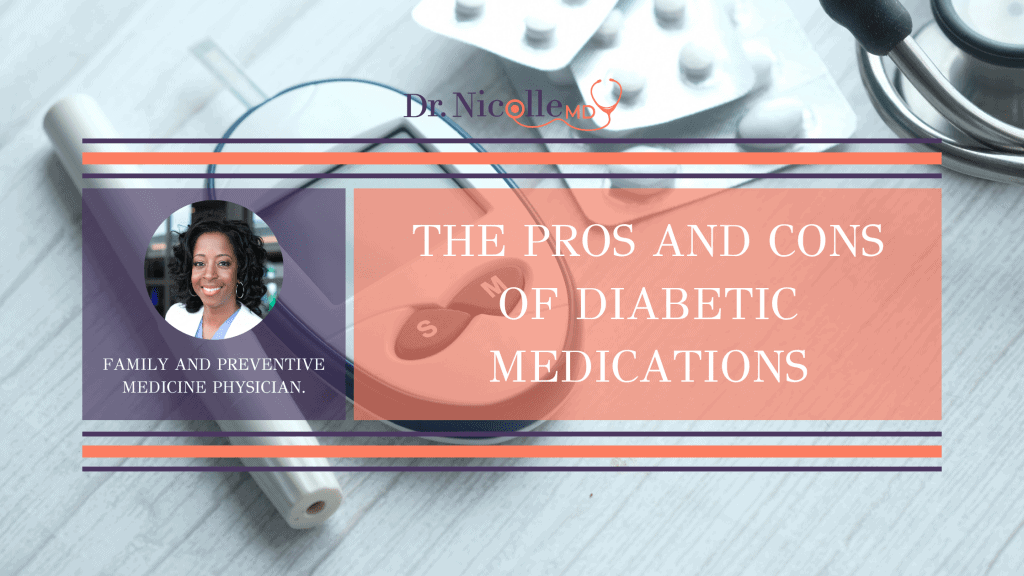
Welcome to Diabetes Prevention Thursdays! Today, let’s talk about the pros and cons of various traditional diabetic medications. Diabetes is no different from other chronic conditions in that it also requires treatment with medication. Type one (T1D) diabetics have to rely on insulin because their bodies cannot produce this glucose regulating hormone.
Type two (T2D) diabetics often require medications, but they can supplement their traditional drugs with lifestyle changes and autophagy to dramatically improve their condition.
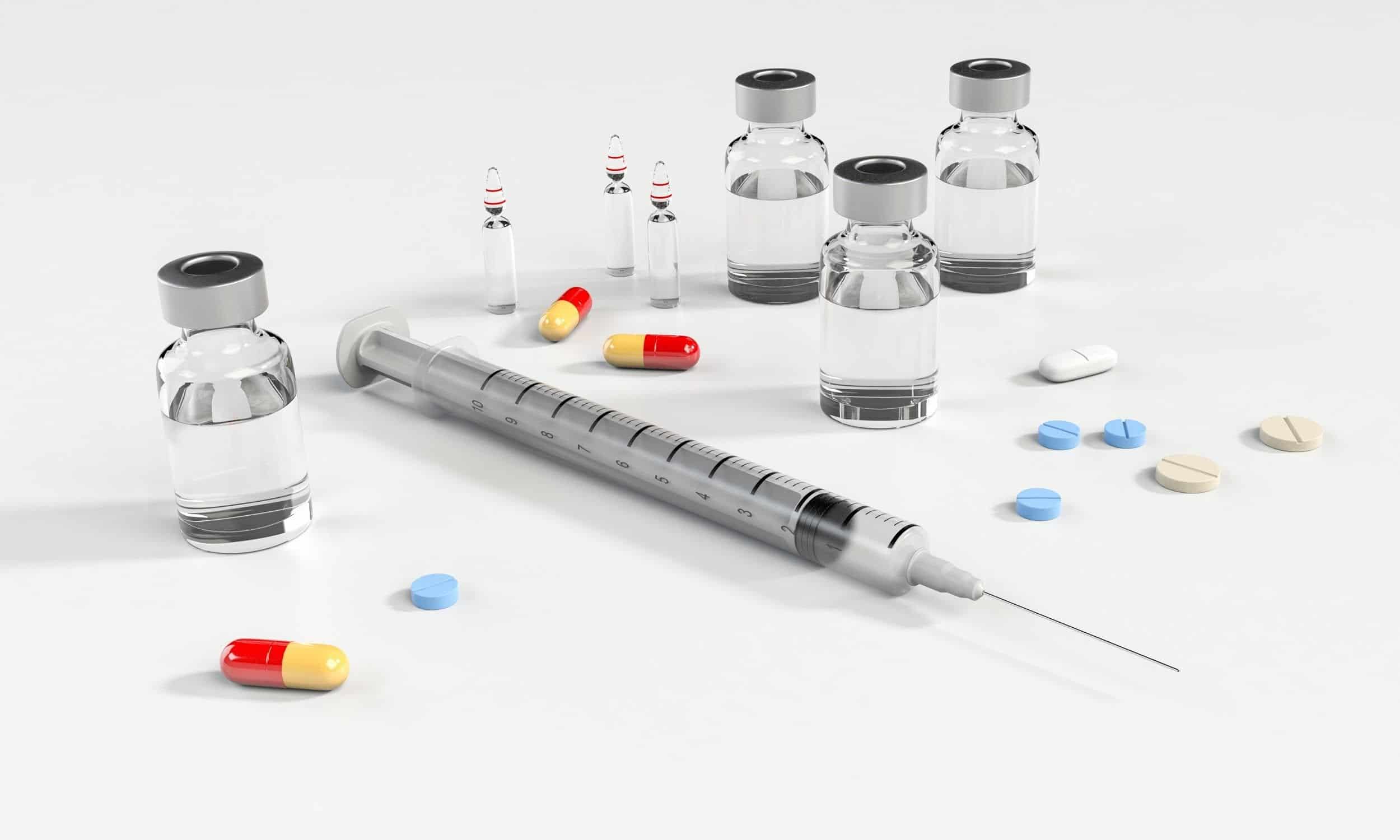
However, understanding what each medication does helps you realize the importance of traditional treatment when it’s necessary. Knowing the side effects can help guide you to consider alternative treatment, if possible.
Type Two Diabetes Medications
Most of the medications you use if you have T2D are oral, but some people also need insulin.
Biguanides
Biguanides are the most common treatment for T2D, and examples are Metformin, Glucophage, and Fortamet.
These drugs decrease the amount of glucose produced by the liver, regulate glucose absorption in the intestines, and increase your sensitivity to insulin.
Biguanides come with potential side effects, such as unintended weight loss, nausea, vomiting, diarrhea, decreased appetite, malaise, and a metallic taste in your mouth. They shouldn’t be used if you have kidney or liver problems.
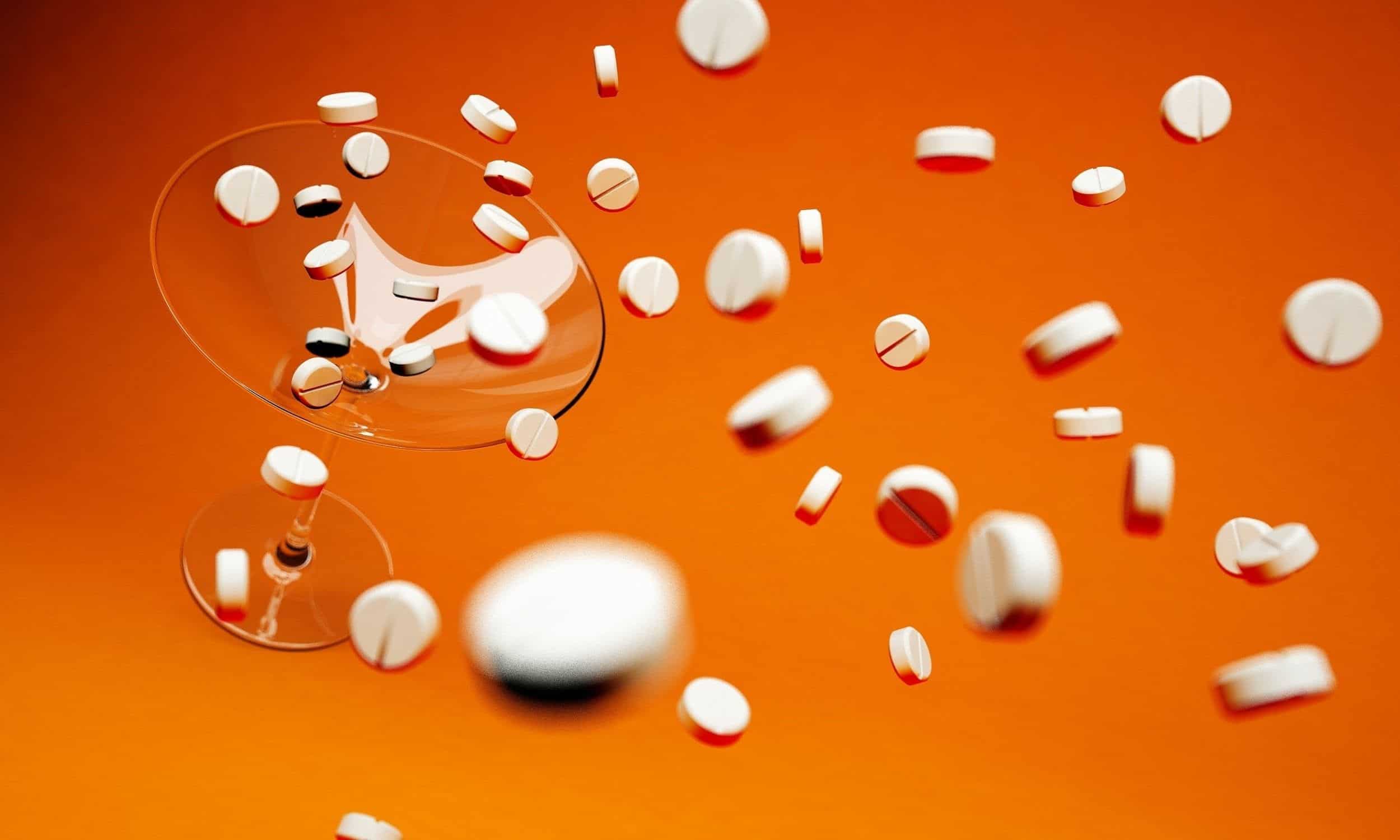
Dipeptidyl Peptidase-4 (DPP-4) Inhibitors
This drug is prescribed along with dietary and lifestyle changes. It includes brand names like Nesina, Canzano, Tradjenta, and Glyxambi. DPP-4 inhibitors are used to produce more insulin when the pancreas has low insulin production.
The potential side effects of DPP-4 inhibitors are migraines, urinary tract infections, and upper respiratory infections, which developed in five percent of patients in a study at Rutgers University.
Sulphonylureas
Sulphonylureas are often supplemental to other diabetic medications, such as Metformin, and some common names are Glimepiride, Glipizide, Glucotrol, and Micronase. These drugs cause the pancreatic beta cells to release more insulin.
The side effects may include weight gain, allergic skin reactions, sensitivity to light, and hypoglycemia, which is low blood sugar.
Thiazolidinediones
Actos is the brand name of this medication, and it acts to decrease glucose production from the liver while enhancing your overall insulin sensitivity.
According to research published by the University of Ioannina in Greece, thiazolidinediones can cause water retention, weight gain, fluid retention in the eyes, and heart failure.
These are some of the common T2D medications and their side effects. If you are able to make some lifestyle changes, you may be able to avoid these oral medications and the associated side effects.

Type One Diabetes Treatment: Insulin
T1D develops when the pancreas isn’t able to produce insulin anymore. This shortage of insulin needs to be replenished, and insulin treatment does that very thing.
The type of insulin treatment prescribed depends on your levels of depletion, but it will be one of the following:
Short-Acting Insulin Includes:
- Humulin
- Novolin
Short-acting insulin is a highly effective drug that stimulates the cells to absorb glucose. Some side effects include the possibility of hypoglycemia, allergic reactions, and the development of fatty cells under the injection site.
Intermediate-Acting Insulin Includes:
- Humulin N
- Novolin N
This insulin treatment is similar to the short-acting injections, but it’s more convenient. The same side effects may occur, but the advantages of the drug outweigh the cons. You should not use this in pregnancy or if you have chronic kidney disease.
Rapid-Acting Insulin Includes:
- Humalog
- Apidra
- FlexPen
- Fiasp
Rapid-acting insulin treatments carry the same pros and cons as the first two types.
Long-Acting Insulin Includes:
- Lantus
- Tresiba
- Levemir
- Toujeo
The long-acting insulin treatments are highly effective, and the effects can last for 24 hours or more. It carries similar side effects as the previous types but can also cause hypersensitivity.
Combination Insulins Might Include:
- Novolog Mix
- Humalog Mix
- Ryzodeg
The combination insulin treatments are also very effective, and they come with some similar side effects. The specific combination will need to be tailored to the individual patient. If you have kidney or liver problems, you likely should not be using this treatment, but check with your doctor.
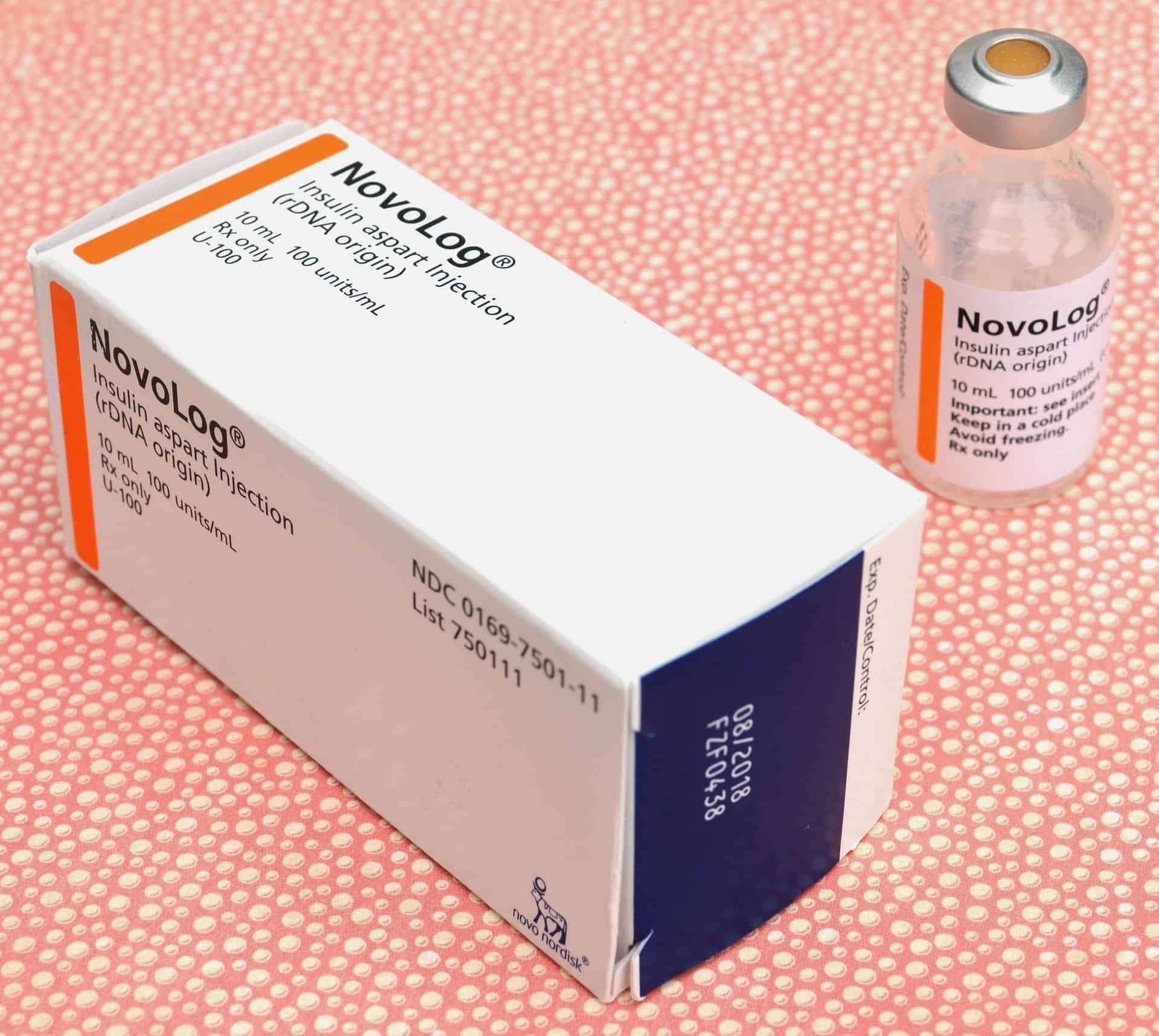
Amylinomimetic Injections
Another injectable drug prescribed to people with T1D is called Amylinomimetic, Pramlintide, or SymLinPen, which is injected before meals to help you digest food and keep your glucose levels low by inhibiting its production.
The main disadvantage of using insulin or injectable treatments is that you’ll have to build a tolerance for needles, which can’t be avoided.
Insulin Pumps
Insulin pumps are tiny computer devices that act as an artificial pancreas and pump short-acting insulin consistently. They even regulate different doses as you eat. Pumps are highly effective if you monitor your glucose and ketone levels.
An insulin pump should be used with very close supervision by your physician. Some disadvantages include the risk of infection at the site, pump malfunctions, and ketoacidosis, which is a serious diabetic complication.
However, the insulin pump is one of many biotechnical advancements in T1D.
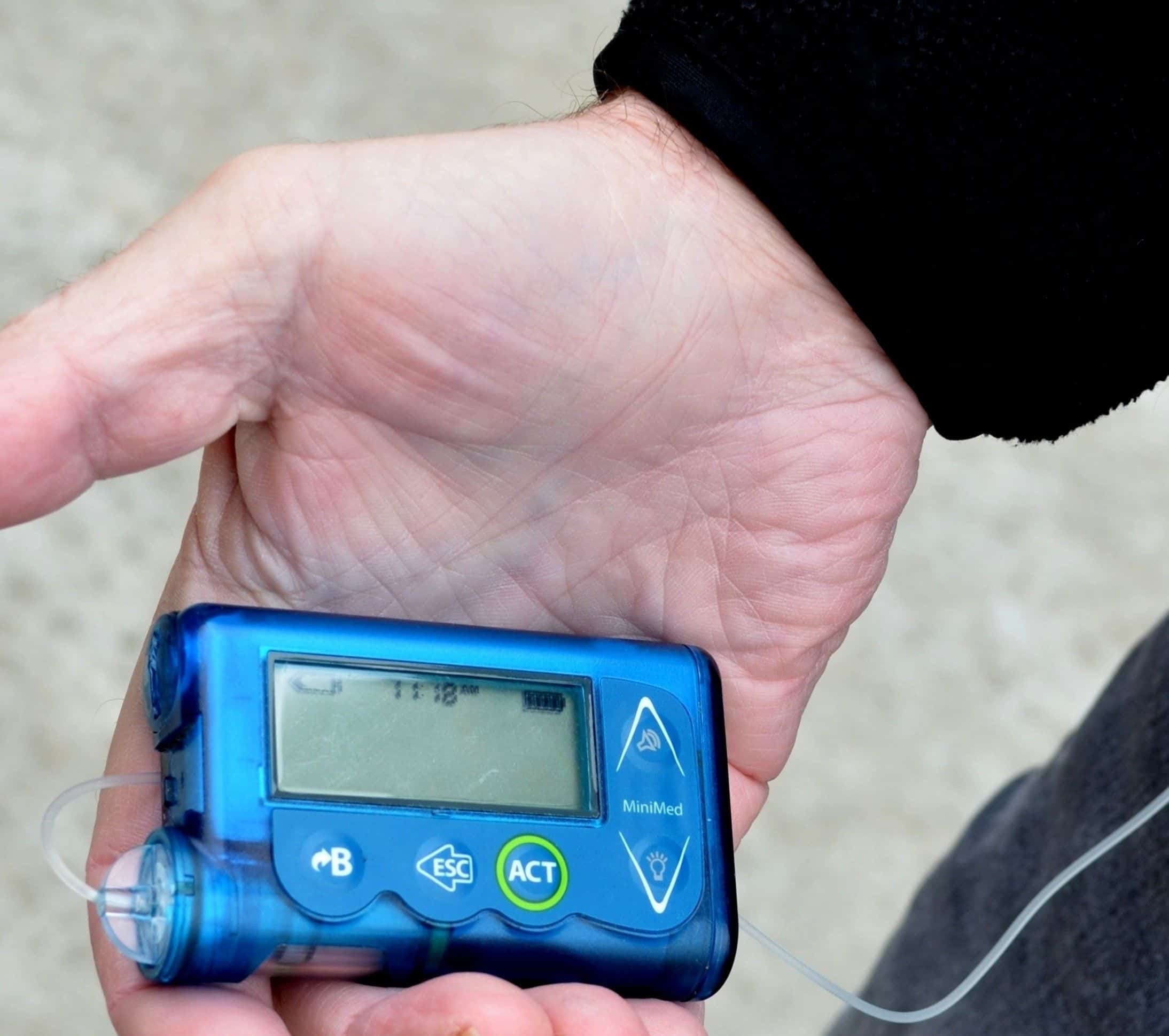
Food For Thought
Whether you’re taking oral medication or injections of insulin, diabetes medical treatments have developed to improve glucose management. Close medical supervision is the key to success in treatment.
If you would like to receive a free resource sheet to help you take control of diabetes, click the button below to receive your gift.
I wanted to talk about this topic because it is absolutely possible to prevent and even reverse Type 2 Diabetes (but you cannot reverse Type 1). Yes, it’s possible! and emerging studies looking at lifestyle medicine and prevention support this! But I always tell my patients that you must be dedicated and diligent in adopting a healthy lifestyle to get the best results. You can create certain behaviors and practices that will not only enrich your life, but that you can pass on to your family, friends, and community, to help break the cycle of this chronic disease so that you can leave a legacy of health to your loved ones.
I use functional medicine and lifestyle medicine as the first line of treatment, before medications, to treat lifestyle-related chronic diseases. Lifestyle-related chronic diseases include diabetes, hypertension, obesity, and some cancers, just to name a few. Lifestyle practices, such as eating a low glycemic, whole-food plant-based diet and regular physical activity, can help you improve your blood sugar levels, maybe reverse type 2 diabetes. In certain cases, these approaches may even outperform pharmaceutical therapy.
But I always tell my patients that conventional medications may be appropriate at this time to prevent catastrophic illness, but over time, you can work to make the necessary lifestyle changes to possibly reduce and/or eliminate medications. Please remember to always consult your physician for your particular needs and circumstances prior to making any decisions whatsoever.
Is Dietary Supplementation Right For You?
When it comes to managing your blood sugars (in general), pre-diabetes, and diabetes, there are many things that you can do to help control your blood sugar levels. One important aspect is diet. What you eat affects your blood sugar, so it’s important to be mindful of what goes into your body.
But it is very important to note that we are not eating the same foods we ate years ago because the soils have been depleted of critical nutrients through current industrial farming practices. And because the soil is not as good as it used to be, the food supply (grown from the depleted soil) is not as good as it used to be. For example, you are not getting the same levels of chromium and magnesium as you would have gotten 30 or even 50 years ago.
Second, much of the food has been processed and genetically altered, which can impact the inherent and unique nutritional composition that each food possess. For example, ancient einkorn wheat has less gluten, more protein, more Vitamin A, and more beta carotene, than modern genetically modified wheat.
Third, the toxic load in the environment today is much higher than 100 years ago. We can see this with global warming, toxic landfills, polluted oceans and waterways, etc. Toxicity levels interfere with nutrient assimilation and absorption not just into the foods, but into our bodies as well. We often see elevated blood sugar levels with poor nutrition and toxicity.
In addition to diet, there are dietary supplements that can have an impact on blood sugar levels. Dietary supplements for diabetes are becoming increasingly popular as people look for ways to improve their blood sugar control.
For some people, vitamin and mineral supplements offer important health benefits. Supplements are designed to fight deficiencies found in our diet and complement the food we eat regularly. Supplements are basically “helping hands” to our daily food.
If you suspect that you aren’t getting the nutrients you need, consider shifting your focus from supplements to eating better.
And if you are unable to eat better, the supplements in my Blood Sugar Support Bundle may provide the extra boost you need.
These are my favorite Diabetes Prevention Supplements to use! This Blood Sugar Support Bundle will ensure you have the intake of the important vitamins, minerals, and probiotics to decrease inflammation and boost your innate wellness day and night. Taken together, it’s a solid plan for increasing your body’s natural resiliency while encouraging healthy blood sugar levels.
For best results make sure you use these supplements with dietary changes including a whole food plant-based diet, regular exercise (at least 2-3x per week), regular sleep (8 hours per night), and intermittent fasting (at least 1-3x per week).
It’s important to note that supplements are NOT a replacement for your regular medication regimen prescribed by your doctor. However, they can be used in addition to help manage your blood sugar levels.
Supplements have the potential to interact with diabetes medications, so it’s important to speak with a healthcare provider before starting any new supplement regimen. Have you tried any dietary supplements for your diabetes? Share your experience in the comments below!
Tools For Diabetes Prevention and Monitoring
Blood Sugar Monitoring
As you know, I always stress the importance of taking control of your health. Monitoring your blood sugar levels is one of the best ways to do this. To do this, a single drop of blood is collected with disposable lancets and placed on a disposable test strip, which you insert into a home blood-sugar monitoring device, called a glucometer.
The common times for checking your blood sugar are when you first wake up (fasting), before a meal, 2 hours after a meal, and at bedtime; however, you should check your blood sugar as many times a day as your health care team suggests.
Monitoring your blood sugar level provides you and your doctors with important knowledge about how food, activity, medication, stress, and other elements might affect your blood sugar levels. This data will assist you and your doctor in developing a therapy plan that is suited to your demands.
There are several types of blood glucose meters, lancets, and test strips to choose from. I often recommend this glucometer, lancets, and test strips.
Weight Monitoring
Since weight management is very important in combatting chronic diseases such as diabetes, I recommend that you be mindful of your weight and its fluctuations, and that you monitor your weight AT LEAST on a weekly basis. I recommend a scale that includes a body composition monitor (*this scale cannot be used with a pacemaker or other implanted devices).
Physical Activity
Physical activity (or exercise) can improve your health and reduce the risk of developing several chronic diseases like high blood pressure, type 2 diabetes, and cancer, just to name a few. Physical activity actually improves insulin sensitivity. Physical activity can improve your mood, boost your immune system, and even help you maintain a healthy weight.
I often recommend yoga and resistance training for physical activity, but as you are aware, there are plenty of forms of “movement” that you can do! But for the basics, especially if you’re just getting started, yoga and resistance training are where I would start.
Yoga
Yoga can be a great way to improve your strength and flexibility, manage your stress, improve your heart health, and lose weight! I recommend using this yoga mat to get started with your yoga practice today!
Resistance Training
Resistance training is the mainstay for overall health. It not only has beneficial effects on reducing body fat, it also increases muscle size and strength. Here are some basic resistance bands that I recommend to everyone. They are great for physical therapy, yoga, strength training, and excellent for traveling.
Food!
Remember, living a healthy lifestyle including eating a whole foods plant-based diet and regular physical activity are the best ways to prevent diabetes.
The Diabetes Meal Plan is geared towards those people with diabetes or prediabetes. The foods are moderately low in carbs, low glycemic, fiber rich, and contain a balance of nutrients to help prevent blood sugar spikes and dips. Foods are also included that may help to lower blood sugar.
Please talk with your doctor about any complementary health approaches, including supplements, you use.
Dr. Nicolle Martin
Some of the links in this article are "affiliate links", a link with a special tracking code. This means if you click on an affiliate link and purchase the item, we will receive an affiliate commission.
The price of the item is the same whether it is an affiliate link or not. Regardless, we only recommend products or services we believe will add value to our readers.
By using the affiliate links, you are helping support our Website, and we genuinely appreciate your support.
Last updated on January 28th, 2022 at 03:29 am

Minimize Medications. Maximize Health.
Are you super busy but need to take control of your health? Are you tired of being tired? Subscribe to my “Minimize Medications, Maximize Health Blog” and I’ll give you 7 Tips to Get Healthy in No Time absolutely FREE.


